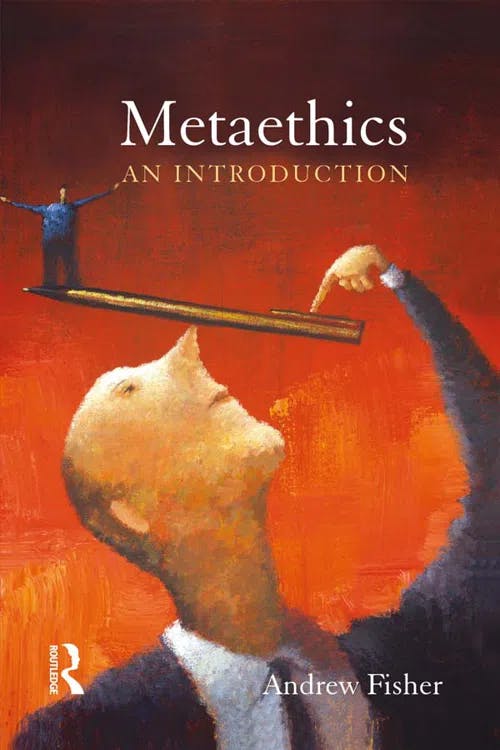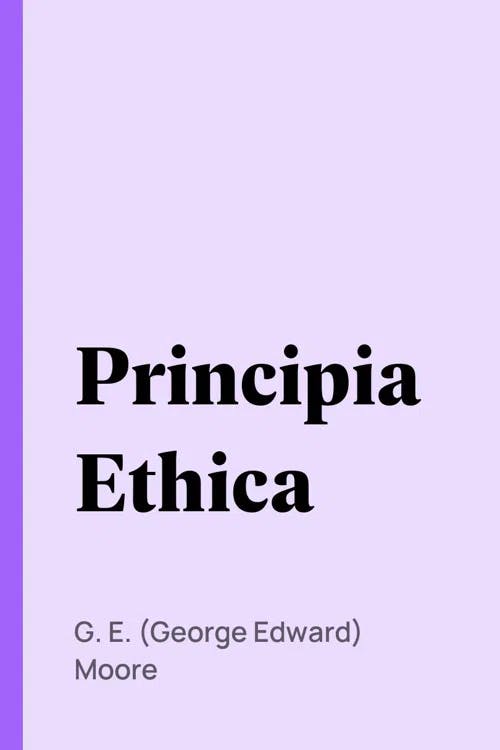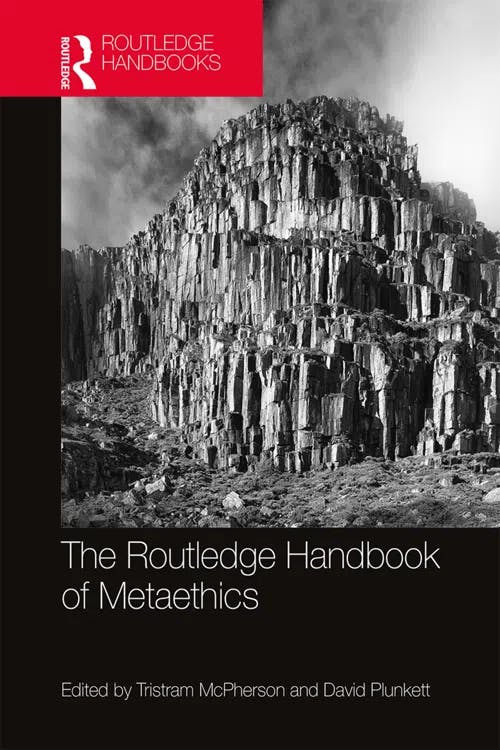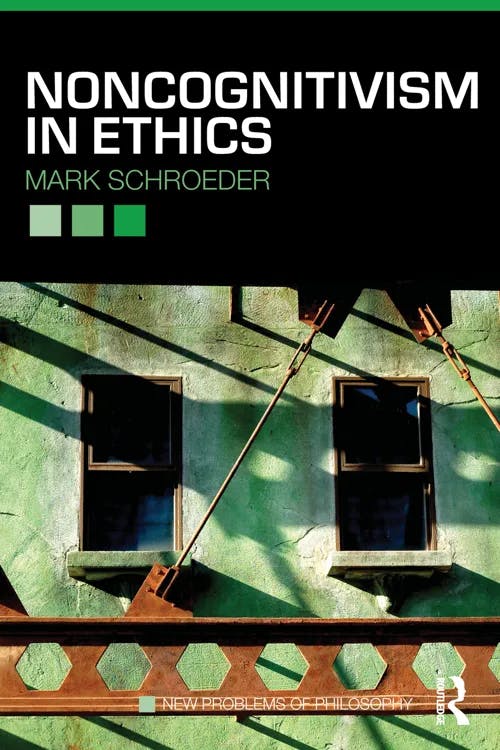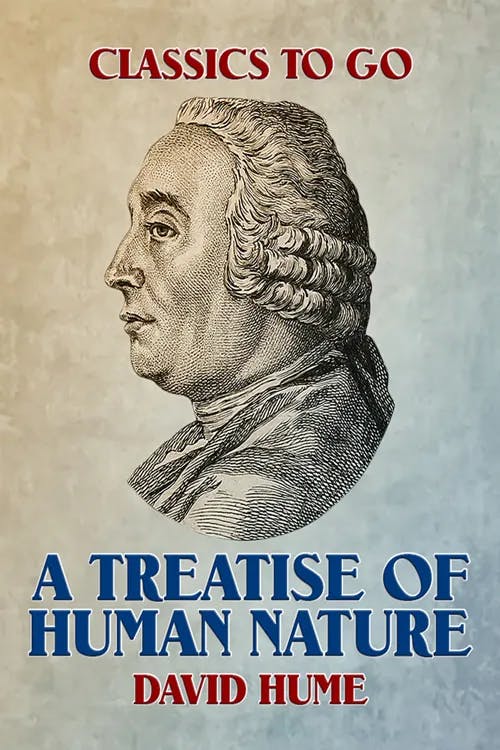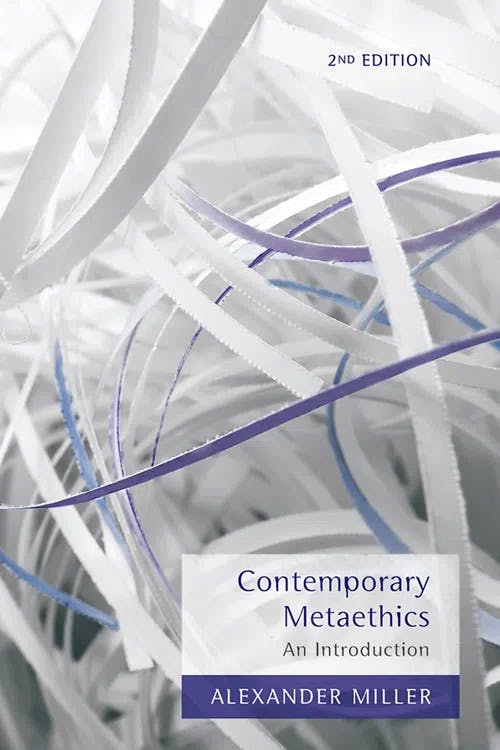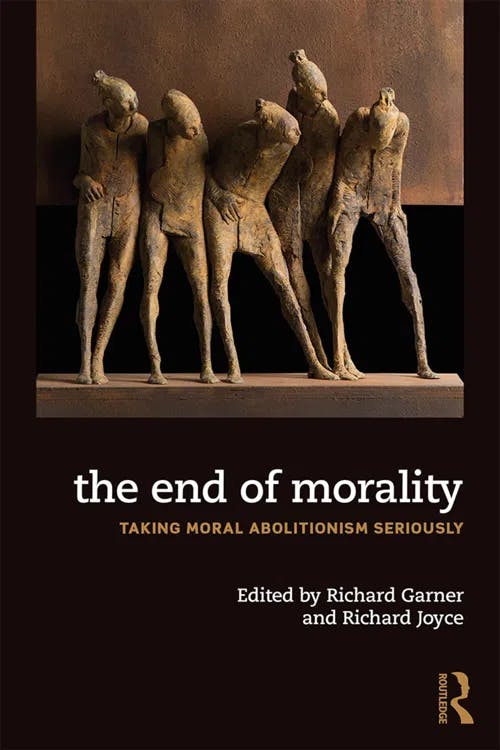What is Moral Anti-Realism?
MA, Philosophy (University of Cambridge)
Date Published: 24.01.2024,
Last Updated: 24.01.2024
Share this article
Moral anti-realism: an initial definition
Moral anti-realism is a metaethical theory which denies, one way or another, that objective moral properties (such as “good” and “bad”) exist. This is in contrast to moral realism: for a moral realist, when we make a moral judgment, what we are saying can be true or false, and the judgment picks out some moral property which exists.
In order to explain moral anti-realism, this guide will outline some of the major moral anti-realist positions.
Moral non-cognitivism and moral cognitivism
Moral anti-realist theories typically fall into one of two camps: non-cognitivism and cognitivism. So before we consider the specific theories, let’s begin by thinking about what these terms mean.
One way of understanding moral non-cognitivism is as the theory that moral statements do not express beliefs. Beliefs are typically regarded as expressing propositions, which are statements that can be true or false like “dogs are mammals.” In other words, they’re “truth-apt.” An example of a sentence type which is not a proposition is a command like “follow that car!” For the non-cognitivist, moral judgements like “murder is wrong” are more like exclamations or commands than propositions. They don’t express beliefs — they express something “non-cognitive” like an emotion or attitude.
By contrast, moral cognitivism is the position that moral statements do express propositions. In Metaethics, Andrew Fisher defines it as the view that,
When we make a moral judgement we are expressing beliefs that describe the world. For example, when I judge that it is good to give money to charity, I am describing charity as having the property of being good. (2014)
Andrew Fisher
When we make a moral judgement we are expressing beliefs that describe the world. For example, when I judge that it is good to give money to charity, I am describing charity as having the property of being good. (2014)
The open question argument and naturalistic fallacy
One argument in metaethics which has contributed to moral anti-realist thought is G.E. Moore’s open question argument (Principia Ethica, 1903, [2016]). Moore himself was a realist: his argument was not against realism but against naturalist theories of morality such as that of J.S. Mill, which sought to define moral properties in terms of natural properties like happiness.
Moore disputes such theories by pointing out that any definition of good — such as J.S. Mill’s identification of “good” with “happiness” — can generate questions like “is happiness good?” Given any property X, if “good” is defined as X it always remains an open question whether X is good.
What Moore argues is that “good” is irreducible and indefinable. As Fisher explains,
If [Moore’s] claims are correct then “good” can only have one referent, and that referent cannot be anything but the property of goodness. For instance, good cannot be reduced to pleasure, well-being, happiness and so on. Good, in Moore’s terminology, is a simple quality. Therefore Moore draws two conclusions in Principia Ethica: that “good” the term is indefinable and that good the property is irreducible. (2014)
In Moore’s view, the mistake which most ethical theories make is to try to define goodness; to try to reduce it to some other property. In doing so, they commit “the naturalistic fallacy,” as Moore outlines in Principia Ethica:
Far too many philosophers have thought that when they named those other properties they were actually defining good; that these properties, in fact, were simply not ‘other,’ but absolutely and entirely the same with goodness. This view I propose to call the ‘naturalistic fallacy’ and of it I shall now endeavour to dispose. (1903, [2016])
G. E. Moore
Far too many philosophers have thought that when they named those other properties they were actually defining good; that these properties, in fact, were simply not ‘other,’ but absolutely and entirely the same with goodness. This view I propose to call the ‘naturalistic fallacy’ and of it I shall now endeavour to dispose. (1903, [2016])
Early expressivism: emotivism
Expressivism is a form of non-cognitivism. In The Routledge Handbook of Metaethics, Elisabeth Camp defines it as,
the view that certain kinds of language have the function of expressing states of mind rather than representing facts. […] More specifically, expressivism holds that words like ‘ought’ or ‘wrong’ conventionally function to express non-cognitive attitudes: attitudes other than straightforward belief, such as emotions or intentions. (Elisabeth Camp, 2017)
Edited by Tristram McPherson and David Plunkett
the view that certain kinds of language have the function of expressing states of mind rather than representing facts. […] More specifically, expressivism holds that words like ‘ought’ or ‘wrong’ conventionally function to express non-cognitive attitudes: attitudes other than straightforward belief, such as emotions or intentions. (Elisabeth Camp, 2017)
An early and particularly well-known expressivist theory is A.J. Ayer’s emotivism.
A.J. Ayer was writing at a time when logical positivism was gaining influence in the field of analytic philosophy. The logical positivists endorsed “the verification principle.” In Language, Truth and Logic, Ayer defines this principle:
A statement is held to be literally meaningful if and only if it is either analytic or empirically verifiable. (1936, [2001])
By “analytic,” here, Ayer means “true by definition.” If something is analytically true, we can verify its truth simply by understanding the meaning of the words involved (as with “all bachelors are unmarried men”). By applying the verification principle to ethics, Ayer arrived at his theory of emotivism: Ayer argues that moral language is neither empirically verifiable, nor analytically true. Ayer agrees with Moore’s open question argument, and concludes that it can’t be the case that moral judgements describe some natural property.
But then, if moral judgements purport to describe something non-natural, then moral properties, if they existed, would exist outside the realm of the empirically verifiable. Given Ayer’s commitment to the verification principle, he therefore rejects cognitivism: moral statements can’t express propositions, because moral judgements don’t correspond to any empirically verifiable state of affairs that could make them true or false.
So what do moral statements mean, if anything? Ayer writes that,
The presence of an ethical symbol in a proposition adds nothing to its factual content. Thus if I say to someone, "You acted wrongly in stealing that money," I am not stating anything more than if I had simply said, "You stole that money." In adding that this action is wrong I am not making any further statement about it. I am simply evincing my moral disapproval of it. It is as if I had said, "You stole that money," in a peculiar tone of horror. (1936, [2001])
To illustrate: in Ayer’s view, if I state that “helping others is good,” then I’m not stating any sort of belief that could be true or false. Instead, I’m merely expressing approval towards a certain kind of behavior.
Emotivism has faced numerous criticisms. For a start, it doesn’t seem able to adequately capture moral disagreement: Ayer suggested that if we’re in agreement about all the non-moral facts, then, in a moral debate, there’s nothing left to disagree about. Secondly, the verification principle has fallen out of favor — with many philosophers arguing that, because it is itself neither empirically verifiable nor analytic, it is meaningless in its own terms!
But let’s turn now to a more general problem for expressivism as a whole.
The Frege-Geach problem
Expressivism faces a number of criticisms. But one of the most discussed and debated is the infamous Frege-Geach problem. It’s a notable problem to outline, as it’s one which more contemporary forms of expressivism strive to tackle from the outset.
Peter Geach, the philosopher behind the Frege-Geach problem, points out that “a proposition may occur in discourse now asserted, now unasserted, and yet be recognizably the same proposition” (“Assertion,” Logic Matters, 1964, [1972]).
An asserted context occurs when a statement is used as an assertion — as with the statement: “murder is wrong.” But statements can also be embedded into unasserted contexts like questions (“is murder wrong?”) and conditionals (“if murder is wrong, then asking your friend to murder is wrong”).
Now let’s think again about emotivism: according to emotivism, the meaning of a moral statement like “stealing is morally wrong” is non-cognitive, and is more similar to an emotional expression like “ugh!” or “boo!” — which is why emotivism is sometimes nicknamed “the boo-hurrah theory.” In an asserted context, then, the meaning of “stealing is wrong” is accounted for: it’s a statement which expresses a negative attitude toward the behavior in question (stealing).
But it’s when we get to moral language used in a non-asserted context that emotivism runs into the Frege-Geach problem. Take a conditional (non-asserted context) claim like “if stealing is wrong, then asking your friend to steal is wrong”: it’s not a statement, and thus it can’t be neatly said to express approval or disapproval. What, then, does the meaning consist in?
Peter Geach took note of this phenomenon, and then argued that if non-cognitivism is true, it fails to account for the fact that moral language appears to have certain logical properties. Geach used the example of a conditional, and applied it to a logical rule of inference known as modus ponens. With a modus ponens argument, if the premises are true, then the conclusion must automatically be true too, regardless of the argument’s content. Geach’s example is:
If doing a thing is bad, getting your little brother to do it is bad.
Tormenting the cat is bad.
Ergo, getting your little brother to torment the cat is bad. (1964, [1972])
As Fisher points out, what’s important to note about modus ponens is that,
If anything is valid, then [modus ponens] is. Moreover, logicians tell us that logic is topic-neutral, which means that this form of argument will remain valid whatever we care to substitute for A and B. (2014)
But Geach’s surprising conclusion is that modus ponens isn’t valid in the case of moral language, because the meaning of the terms being used changes between the premises. With the asserted context, the meaning consists in some sort of expression of approval or disapproval; in the unasserted context, it can’t consist in this meaning as nothing definite is plausibly being expressed. The meaning changes between the premises, which means that a fallacy of equivocation is always committed. This renders the argument invalid: the conclusion no longer follows from the premises.
More generally, the Frege-Geach problem attacks non-cognitivist semantics. As Mark Schroeder explains, non-cognitivist semantics seems unable to meet the “compositional constraint” on language which requires that the meaning of complex sentences can be composed of the meaning of simple sentences:
[I]t is far from clear how to generalize Ayer’s story about the meaning of ‘stealing money is wrong’ to a story about the meaning of bigger, more complex, sentences of which it is a part. But that means that he hasn’t really told us what it means. An adequate account of the meaning of a word must satisfy the compositional constraint, by telling us how, given the meaning of that word and the meanings of other words, to determine the meanings of complex sentences of which they are parts. (2010)
Mark Schroeder
[I]t is far from clear how to generalize Ayer’s story about the meaning of ‘stealing money is wrong’ to a story about the meaning of bigger, more complex, sentences of which it is a part. But that means that he hasn’t really told us what it means. An adequate account of the meaning of a word must satisfy the compositional constraint, by telling us how, given the meaning of that word and the meanings of other words, to determine the meanings of complex sentences of which they are parts. (2010)
In summary, then, the Frege-Geach problem points out that non-cognitivism can’t explain a key fact about moral language: the fact that it does have logical properties. As is evident from the fact that (for example) a modus ponens argument is valid even when moral language is used, it’s clear that moral language does have these logical properties. Since non-cognitivism doesn’t seem to be able to account for this feature of moral language, then (according to the Frege-Geach problem) it is not an adequate theory of moral language and it has to be rejected.
Contemporary expressivism: quasi-realism
Though the Frege-Geach problem is damaging for non-cognitivism, it hasn’t signaled the end for this branch of moral anti-realism, which is still a thriving anti-realist position. Simon Blackburn is one contemporary expressivist. His theory is a form of expressivism known as “projectivism,” a philosophy which draws heavily on the work of David Hume. For Blackburn, when we make moral judgements, we’re expressing emotions which we actually project onto the world as if they were a feature of the world — something which Hume noted was a feature of many concepts in A Treatise of Human Nature:
‘Tis a common observation, that the mind has a great propensity to spread itself on external objects, and to conjoin with them any internal impressions, which they occasion, and which always make their appearance at the same time that these objects discover themselves to the senses. (1739, [2021])
David Hume
‘Tis a common observation, that the mind has a great propensity to spread itself on external objects, and to conjoin with them any internal impressions, which they occasion, and which always make their appearance at the same time that these objects discover themselves to the senses. (1739, [2021])
Beyond the fact that Blackburn’s theory is an example of contemporary expressivist thought, his work is also notable because, in addition to endorsing expressivism, Blackburn is also a proponent of a research project known as quasi-realism. As Alexander Miller explains in Contemporary Metaethics, quasi-realism is
The project of explaining how we can legitimately say things like ‘It’s true that murder is wrong’, ‘It’s false that breaking promises is the right thing to do’, ‘Jones believes that murder is wrong’ and so on […]. It is the project of explaining how we can legitimately talk as if we were entitled to the assumption that there is a distinctively moral reality, even though we are not [...]. (2014)
Alexander Miller
The project of explaining how we can legitimately say things like ‘It’s true that murder is wrong’, ‘It’s false that breaking promises is the right thing to do’, ‘Jones believes that murder is wrong’ and so on […]. It is the project of explaining how we can legitimately talk as if we were entitled to the assumption that there is a distinctively moral reality, even though we are not [...]. (2014)
So Blackburn wants to explain how it is that moral discourse has such a strong and convincing appearance of realism while remaining a committed anti-realist.
In Spreading the Word (1984), Blackburn makes several arguments for adopting expressivism over moral realism. One of these is that projectivism is more economical in the properties it posits than realism, which must posit uniquely moral facts and an epistemic faculty for knowing these facts:
The projective theory intends to ask no more from the world than what we know is there – the ordinary features of things on the basis of which we make decisions about them, like or dislike them, fear them and avoid them, desire them and seek them out. It asks no more than this: a natural world, and patterns of reaction to it. (1984)
Typically, we have reason to prefer any theory which is more economical in its ontological commitments than the alternative.
Given that quasi-realism aims to explain the realist-seeming semantics of moral language, it’s clear that it needs to provide an answer to the Frege-Geach problem, as we’ll see below.
Responding to the Frege-Geach problem
In Ruling Passions, Blackburn asks how unasserted, or “indirect” contexts (such as conditionals or questions) work in non-moral language, which concern facts. He then extends the function he identifies to moral language, which concerns attitudes rather than facts:
If we want to know in other terms what is going on when we so put forward [rather than assert] an attitude, we must look to the function of the indirect contexts in question. The key idea here is one of a functional structure of commitments that is isomorphic with, or mirrored by, the propositional structure we use to express them. Thus someone may be what I call ‘tied to a tree’: in a state in which he or she can only endorse some combination of attitude and belief. (1998)
So let’s take a non-moral case of an indirect context. Miller uses the following example of a non-moral modus ponens:
(A) Jones is in Southwark [an area of London].
(B) If Jones is in Southwark then Jones is in London.
So:
(C) Jones is in London. (2014)
This is a valid argument. And if someone were to endorse the premises but not the conclusion, then Blackburn points out that they’d be tying themselves to an inconsistent combination of “commitments.” In this case, for example, if we accept the premise that Jones is in Southwark we must also accept the conclusion that he is in London. Blackburn suggests that “logic is our way of codifying and keeping track of intelligible combinations of commitment’’ (Blackburn 1984), and that we can see moral language as involving commitments, too.
How can Blackburn extend this to moral language? Miller explains that, first of all, we need a moral equivalent to belief: acceptance. Just as I cannot consistently be committed to a belief in premises A and B without also being committed to the conclusion C, I can’t claim to accept a series of moral claims which follow the same structure without being accused of inconsistency. And it’s this inconsistency which explains logical properties of moral language such as validity.
This allows us to account for indirect contexts like “if murder is wrong, then getting your friend to murder is wrong,” as ultimately, what we’re doing is entertaining a thought about what the commitments such a conditional would require. And in the case of a moral modus ponens, validity is respected: if we don’t accept the conclusion from the premises, it’s because we’re tying ourselves to inconsistent combinations of commitments. So by explaining how both moral and non-moral language functions in non-asserted contexts, Blackburn has provided an explanation of how the meaning of moral language can stay the same across all contexts.
What this means, then, is that Blackburn believes he has resolved the Frege-Geach problem because he has explained how moral language can have logical properties even if expressivism is true. These logical properties are the product of the “commitment” function that can appear in both direct and indirect contexts: a function of both moral and non-moral language.
The debate around the Frege-Geach problem doesn’t end there, and this is merely a brief sketch of Blackburn’s response. But what’s crucial to note is that Blackburn’s quasi-realist approach (and that of other contemporary expressivists) does not take the Frege-Geach problem to be an unsolvable problem for expressivists. So expressivism isn’t dead in the water, despite the lasting impact of the Frege-Geach problem.
Error theory
Error theory is a cognitivist anti-realist theory. For error theorists, moral statements can be either true or false. They express beliefs. It just so happens that they are systematically false. Error theory is neatly summarized by Jonas Olson in The Routledge Handbook of Metaethics as follows:
Error theory about some area of thought and discourse, D, is commonly defined as the view that D involves systematically false beliefs and that, as a consequence, all D-judgments, or some significant subset thereof, are false. (2017)
Edited by Tristram McPherson and David Plunkett
Error theory about some area of thought and discourse, D, is commonly defined as the view that D involves systematically false beliefs and that, as a consequence, all D-judgments, or some significant subset thereof, are false. (2017)
In his work Ethics, J.L. Mackie develops three arguments for error theory, which we’ll consider one by one.
Mackie’s first argument is his argument from relativity. The first premise of this argument points to a fact: that there’s a great deal of moral disagreement in the world; and that moral norms can vary from society to society (and within a society):
The argument from relativity has as its premise the well-known variation in moral codes from one society to another and from one period to another, and also the differences in moral beliefs between different groups and classes within a complex community. (Ethics, 1977)
Mackie argues that the best explanation for this phenomenon is not that certain societies have privileged access to some objective moral truth, which other societies have failed to grasp. Instead, he argues it’s more likely that certain practices happened to emerge in certain societies, and that certain moral views emerged as a result.
Mackie’s next argument is a two-part “argument from queerness.” The first part is a metaphysical claim:
If there were objective values, then they would be entities or qualities or relations of a very strange sort, utterly different from anything else in the universe. (1977)
And the second part is an epistemic claim:
Correspondingly, if we were aware of them, it would have to be by some special faculty of moral perception or intuition, utterly different from our ordinary ways of knowing everything else. (1977)
With the metaphysical claim, Mackie notes that moral properties, if they exist, would be entirely different from any other property that exists. Miller explains that what Mackie is identifying as strange about moral properties is that they’d be intrinsically action-guiding:
The obtaining of a moral state of affairs would be the obtaining of a situation ‘with a demand for such and such an action somehow built into it’; the states of affairs which we find in the world do not have such demands built into them, they are ‘normatively inert’, as it were. Thus, the world contains no moral states of affairs, situations which consist in the instantiation of a moral quality. (2014)
Alexander Miller
The obtaining of a moral state of affairs would be the obtaining of a situation ‘with a demand for such and such an action somehow built into it’; the states of affairs which we find in the world do not have such demands built into them, they are ‘normatively inert’, as it were. Thus, the world contains no moral states of affairs, situations which consist in the instantiation of a moral quality. (2014)
And similarly, the empirical claim seems to demand of reality something utterly unlike anything else that we know to exist, a unique faculty for intuiting these strange moral facts.
Essentially, then, Mackie’s “argument from queerness” points out that moral realism is not economical: it requires the existence of entirely unique entities, and epistemic faculties, unlike any other in existence. If we can explain moral values without having to posit such entities and faculties, then we have a reason for preferring that explanation. And Mackie’s explanation is that while our moral language aims to describe features of the world, we fail in this aim: our statements are systematically false.
We should note that error theory is a radical theory. Think of any abhorrent act that we’d typically condemn: error theory implies that when we say it’s morally wrong to commit that act, we’re saying something that’s untrue.
However, error theory doesn’t stop at the claim that moral judgements are systematically false. For many philosophers who accept error theory, the next step is to ask: if all moral talk is incorrect, what are we to do with morality? The position error theorists adopt depends, essentially, on whether or not morality is taken or be useful or not. Abolitionists like Ian Hinckfuss suggest that we should abandon morality altogether because it is not useful:
the more that people are motivated by moral concerns, the more likely it is that their society will be elitist, authoritarian and dishonest, that they will have scant respect for most of its members, that they will be relatively inefficient in engendering human happiness, self-esteem or satisfaction, that they will be relatively inefficient in the resolution of conflicts, and that their moralising will exacerbate conflicts [...]. (Ian Hinckfuss, 2018)
Edited by Richard Garner and Richard Joyce
the more that people are motivated by moral concerns, the more likely it is that their society will be elitist, authoritarian and dishonest, that they will have scant respect for most of its members, that they will be relatively inefficient in engendering human happiness, self-esteem or satisfaction, that they will be relatively inefficient in the resolution of conflicts, and that their moralising will exacerbate conflicts [...]. (Ian Hinckfuss, 2018)
If you notice that numerous moral judgements seem to be present in this paragraph, you’re not alone. But abolitionists do, of course, anticipate and provide counters to this type of argument against their position.
Still, even if we’re committed error theorists, we might regard moral language and concepts as useful, so we might not want to eliminate moral talk.
If you’re an error theorist but you think morality might serve a useful purpose, then fictionalism is a potential route to take. Fictionalists like Richard Joyce agree with abolitionists that we shouldn’t try to commit ourselves to the existence of things we don’t believe exist, but that because morality is useful, we shouldn’t eradicate moral talk and practices.
Their approach is to use familiar fictions as a model for how we can talk, usefully, about certain topics even when the entities in question don’t exist:
Just as we can discuss Sherlock Holmes without committing ourselves to his existence […] so, too (the fictionalist maintains), our error theorist counterparts could talk about promise-keeping as morally obligatory (say) without committing themselves to the existence of moral obligations. (Hinckfuss, 2018)
Summing up
We’ve seen that moral-anti realism can take numerous forms. A moral anti-realist might believe that claims about morality are systematically false. Or they might believe that moral language aims to express something other than beliefs which can be true or false, as in the case of non-cognitivism.
What’s clear is that moral anti-realism spans numerous areas of philosophical thought, from metaphysics to the philosophy of language. It’s a complex position to understand, but an important one, if we consider how deeply entrenched moral concepts are within our everyday lives and use of language.
Further reading on Perlego
Thinking How to Live (2009) by Allan Gibbard
Moral Psychology (2021) by Christian B. Miller
Philippa Foot’s Moral Thought. (2013) by John Hacker-Wright
Ethical Subjectivism and Expressivism (2020) by Neil Sinclair
Moral anti-realism FAQs
What is moral anti-realism in simple terms?
What is moral anti-realism in simple terms?
What is cognitivism?
What is cognitivism?
What is non-cognitivism?
What is non-cognitivism?
Who are some of the key anti-realist philosophers?
Who are some of the key anti-realist philosophers?
Bibliography
Ayer, A.J. (2001) Language, Truth and Logic. Penguin.
Blackburn, S. (2000) Ruling Passions. Oxford University Press.
Blackburn, S. (1984) Spreading the Word. Oxford University Press.
Fisher, A. (2014) Metaethics. Taylor and Francis. Available at: https://www.perlego.com/book/1558195/metaethics-an-introduction-pdf
Hume, D. (2021) A Treatise of Human Nature. Otbebookpublishing. Available at: https://www.perlego.com/book/3556867/a-treatise-of-human-nature-pdf
Joyce, R. (2022) “Moral Anti-Realism,” The Stanford Encyclopedia of Philosophy. Winter 2022 edition. Available at: https://plato.stanford.edu/archives/win2022/entries/moral-anti-realism
Joyce, R. and Garner, R. (eds.) (2018) The End of Morality. Taylor and Francis. Available at: https://www.perlego.com/book/1548271/the-end-of-morality-taking-moral-abolitionism-seriously-pdf
Mackie, J. L. (1990). Ethics. Penguin.
McPherson, T. and Plunkett, D. (eds.) (2017) The Routledge Handbook of Metaethics. Taylor and Francis. Available at: https://www.perlego.com/book/1572769/the-routledge-handbook-of-metaethics-pdf
Moore, G. E. (2016) Principia Ethica. Perlego. Available at: https://www.perlego.com/book/1821578/principia-ethica-pdf
Miller, A. (2014) Contemporary Metaethics. 2nd edn. Polity Press. Available at: https://www.perlego.com/book/1535717/contemporary-metaethics-an-introduction-pdf
Schroeder, M. (2010) Noncognitivism in Ethics. Taylor and Francis. Available at: https://www.perlego.com/book/1609024/noncognitivism-in-ethics-pdf
MA, Philosophy (University of Cambridge)
Genevieve Sandle has a Master's degree and Bachelor's degree in Philosophy from the University of Cambridge. Her research interests include ethics and meta-ethics, and debates in contemporary political philosophy including the liberal-communitarian debate and structural injustice. Her dissertation focused on the relationship between philosophical theories of free will, and the criminal justice system

